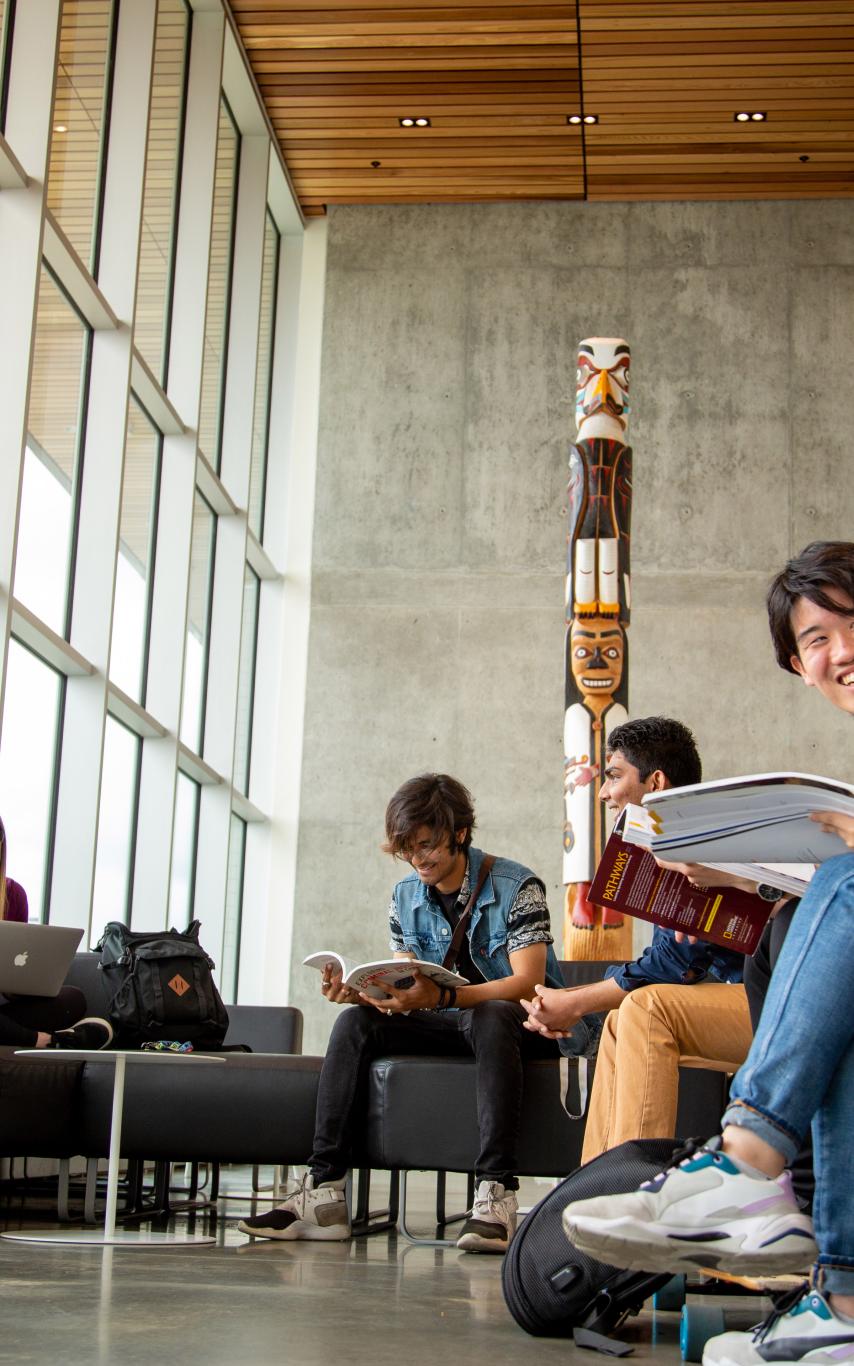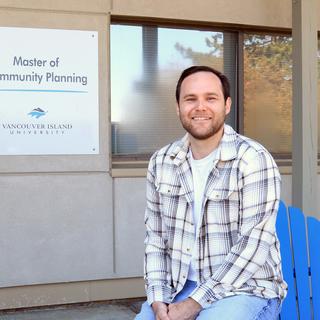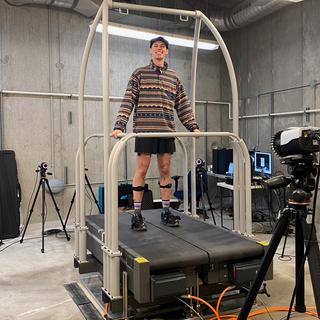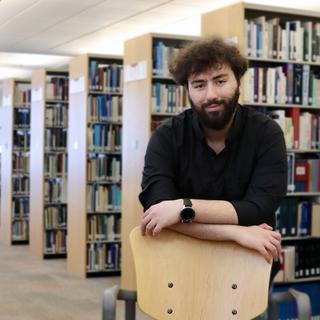Year-long project investigated student hunger on campus
VIU students enrolled in an interdisciplinary team-based research course confronted a mounting issue experienced on campuses across Canada: student hunger.
Six students – Meagan Sharpe, Jenna Sportak, Riddhiman Saha, Sydney Gallant, Kyle Wickland and Esther Ovie – completed a research project that investigated food security on all three Vancouver Island University campuses through the Community-Based Applied Interdisciplinary Research program. The course is open to third-year undergraduate students as well as graduate students and is entirely student-led, with research projects designed and carried out by the students.
The project
The year-long project investigated the state of food security amongst the student body at the Nanaimo, Cowichan and tiwšɛmawtxʷ campuses. Part of a larger initiative to tackle student hunger that includes food pantries and emergency financial aid as well as research, $15,000 in funding was provided by The Embark Student Foundation Major Grant Program for the research project.
“One of the most empowering experiences for me was being able to be on the ground and talking to students, conducting a literature review and disseminating the work we did in the first semester, talking to stakeholders and getting an understanding of what’s going on in our campuses,” says Jenna, a fourth-year Sociology and Women & Gender Studies student.
Collecting the data
The team created food packets to recruit participants for an online survey, the primary method of data collection. The packages included a juice box, granola bar, some chocolate and a fruit snack. Inside each was a card that had a stat obtained from the government of Canada about student food security with a QR code linking to the survey.
“Our questions focused on what can VIU do as an institution to enhance food security, and what do students need to be food secure?” says Jenna. “We also attended campus events to raise awareness about food security and created a food walkability map. Three of our team members also participated in a secondary university project about food insecurity, The Hunger Hack challenge.”
What they discovered
Of the more than 300 survey respondents, 35 per cent identified as food insecure and 74 per cent said food insecurity is a problem at VIU. Lack of affordable food was also noted, with 77 per cent reporting the cost of food on campus as a barrier. Students said the hours of operation at the cafeteria were inadequate, and there are no on-campus food services open on weekends.
The team found that international student respondents were at the highest risk of being food insecure.
“We also found there is a significant lack of culturally appropriate food options and allergen-free options to meet dietary needs,” says Jenna. “For example, someone with celiac disease faces an additional $2 to $3 upcharge for gluten-free bread, so instead of paying $12 to $14 for a sandwich, they end up paying upwards of $15 or more, simply on the basis of needing to meet dietary requirements that are not a choice. Many university students cannot afford that.”
The team created a walkability map that showed limited affordable food options within a one-kilometer walking radius from the Nanaimo campus. The closest grocery store is a 20-minute walk away. Centralization of food services on campus is a significant barrier for students with back-to-back classes.
Students identifying as food insecure use short-term coping strategies, the survey found:
- 47 per cent skip meals, with anywhere from zero to 20 meals skipped per week.
- 42 per cent rely on discounted products.
- 8 per cent said they have resorted to unconventional methods such as stealing food or even dumpster diving.
“It’s clear that the student body has overwhelmingly identified the cost of food on campus as the most significant barrier,” says Jenna. “We continue to see costs increase, so students are left with little in their pockets and little in their stomachs.”
Solutions
The team has a list of recommendations for improving food security on our campuses including having a student representative at the students’ union and on the Board of Governors who can speak specifically to food security issues.
Other suggestions include an at-cost or sliding scale market on campus, or a small grocery store on campus.
“Students want to know why we don’t have more small businesses on campus, such as more food trucks or other local businesses like that. And they want the university to implement a program to advertise and sell unused food items from the cafeterias at the end of the day at significantly discounted prices, or free after certain hours,” says Jenna.
Next steps
“Food security has always been a thing for university students, and I think we’re really trying to ensure that that conversation doesn’t go away,” says Jenna. “Our intention is to give this report to the Acting President to be able to better inform where the remainder of the funds that we received from the Embark Grant should go.”
Sydney, Meagan and Jenna will present this research at the Canadian Sociological Association Conference in Toronto June 1 to 6.
“I’m committed to continuing to advocate for expanded food security initiatives,” says Jenna. “I always thought research wasn’t for me, but being involved in CBAIR gave me a lot of new skills and opened a lot of doors for me. I just feel privileged to have been able to do the work that I did this year, and to get credit for it and to go to the CSA conference in Toronto, to speak about something I am so passionate about.”
Blog photo caption: VIU CBAIR student participants from left: Esther Ovie, Jenna Sportak, Sydney Gallant, Meagan Sharpe, Kyle Wickland, and Riddhiman Saha.




